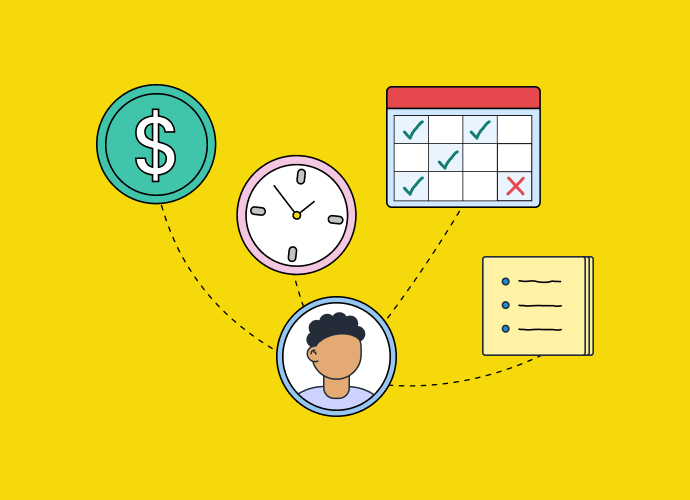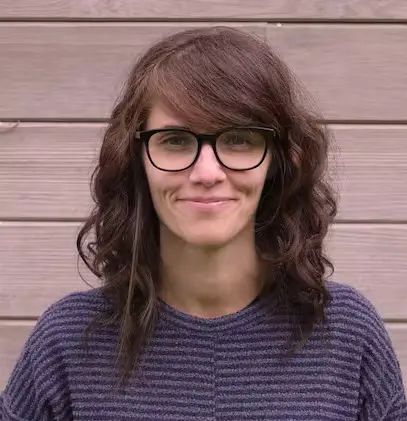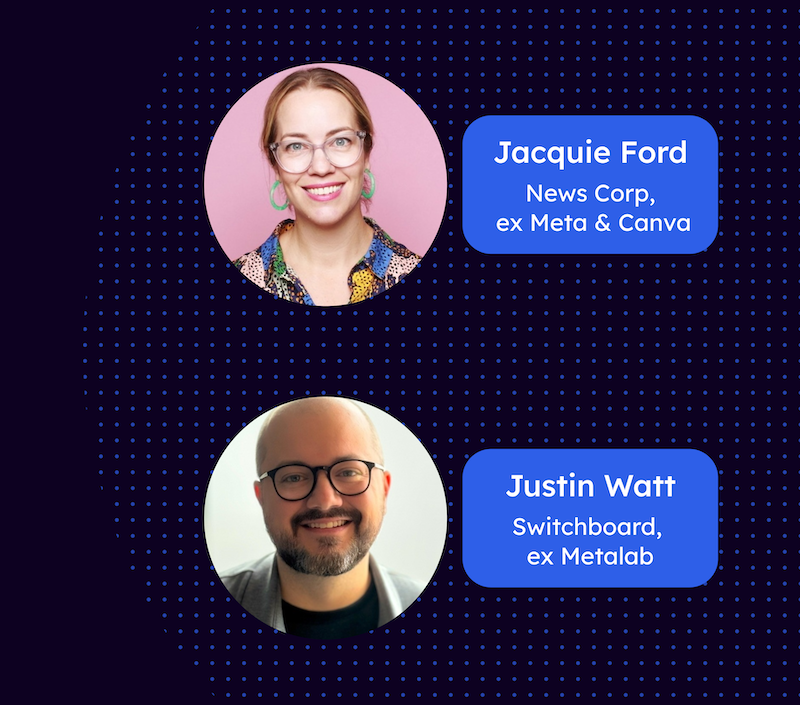Resource library
In-depth tactical advice about managing resources and workloads, planning capacity, and avoiding over-allocation effectively—with (and without) Float.
Thank you! Your submission has been received!
Oops! Something went wrong while submitting the form.

Resource management
When ‘efficiency’ misses the point
Discover how to run an efficient organization without sacrificing effectiveness, with insights from Float’s CEO, Glenn Rogers.

Content Marketer

Resource management
The other E word
Discover how to run an efficient organization without sacrificing effectiveness, with insights from Float’s CEO, Glenn Rogers.

Content Marketer

Resource management
The hidden cost of shiny tool syndrome
Tool bloat might be slowing down your team. Here’’s advice on how to intentionally adopt software from Laurel Burton, CEO of Instrument.

Content Marketer

Resource management
The hidden cost of shiny tool syndrome
Tool bloat might be slowing down your team. Here’’s advice on how to intentionally adopt software from Laurel Burton, CEO of Instrument.

Content Marketer

Resource management
What will work be like in 2062?
Let’s zoom past flying cars and robot assistants to peek at what work might look like in 2062.

Content Marketer

Resource management
What will work be like in 2062?
Let’s zoom past flying cars and robot assistants to peek at what work might look like in 2062.

Content Marketer

Resource management
Fix your agency’s resource management process for good: proven strategies from successful teams
Learn how to improve team performance, retain clients, and achieve sustainable growth from 8 agency leaders.

Content Marketer

Resource management
Agency Resource Management: The 5-Step Framework You Need
Learn how to improve team performance, retain clients, and achieve sustainable growth from 8 agency leaders.

Content Marketer

Resource management
The experts’ guide to resource management (and the 4 steps to do it right)
Resource management is a juggling act. With 20 balls. And they’re all on fire. But this guide makes it easier (we promise).

Content Lead

Resource management
Resource Management: Definition, Techniques & Steps
Resource management is a juggling act. With 20 balls. And they’re all on fire. But this guide makes it easier (we promise).

Content Lead

Resource management
The (he)art and science of resource management
Scientific management revolutionized work in the 20th century. In the 21st, the best managers don’t just optimize for efficiency: they balance it with humanity.

Content Marketer

Resource management
The (he)art and science of resource management
Scientific management revolutionized work in the 20th century. In the 21st, the best managers don’t just optimize for efficiency: they balance it with humanity.

Content Marketer
-min.png)
Resource management
Resourcing should be Switzerland: advice from former resource leaders at Facebook and Metalab
Expert insights on how to keep resourcing neutral, balanced, and effective in any organization.

Content Marketer

Resource management
What Creative Operations Can Learn from Switzerland about Resourcing
Expert insights on how to keep resourcing neutral, balanced, and effective in any organization.

Content Marketer

Time tracking
What is time tracking—and is it worth your time?
If you want to learn the benefits of time tracking software and how to use it, you've come to the right place.

Content Lead

Time tracking
What Is Time Tracking (and Why Does Your Org Need It)?
If you want to learn the benefits of time tracking software and how to use it, you've come to the right place.

Content Lead

Project planning
Project planning: 7 steps for a people-first process that works
Your people are your most valuable resources. Learn how to build project plans that put them front and center.

Consultant and Coach

Project planning
Project Planning Guide: a People-First Approach
Your people are your most valuable resources. Learn how to build project plans that put them front and center.

Consultant and Coach

Project planning
The TV pilot mindset
TV networks use pilots to mitigate risk before green-lighting a full season. Resource managers should do the same.

Content Marketer

Project planning
The TV pilot mindset for resource managers
TV networks use pilots to mitigate risk before green-lighting a full season. Resource managers should do the same.

Content Marketer






